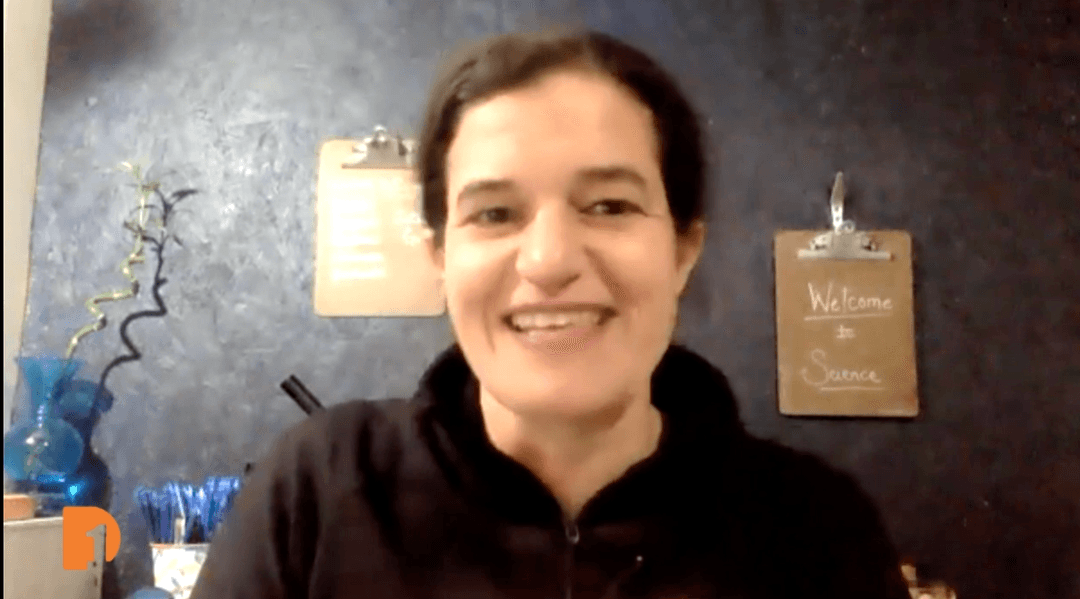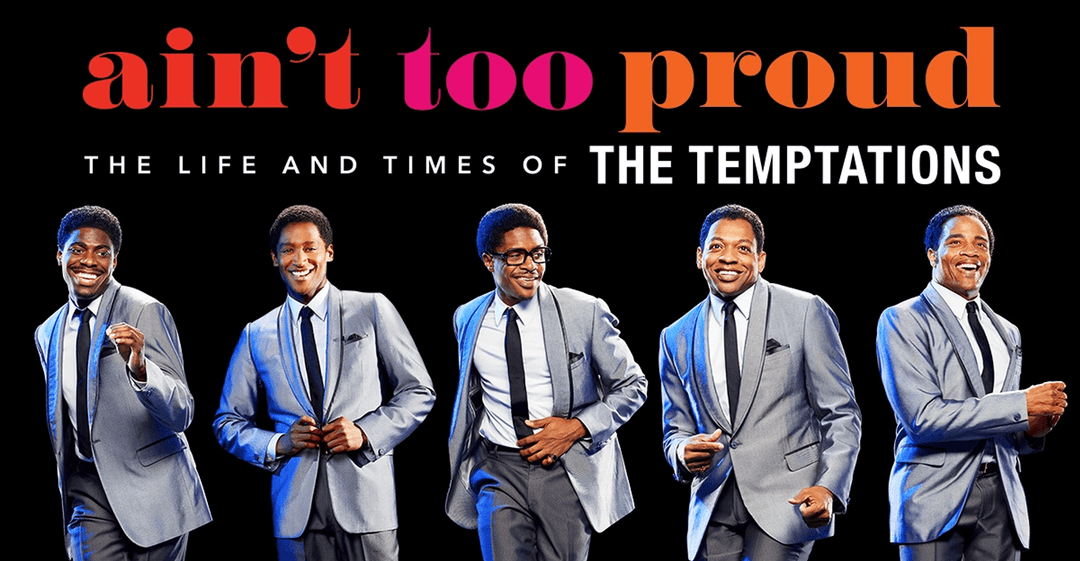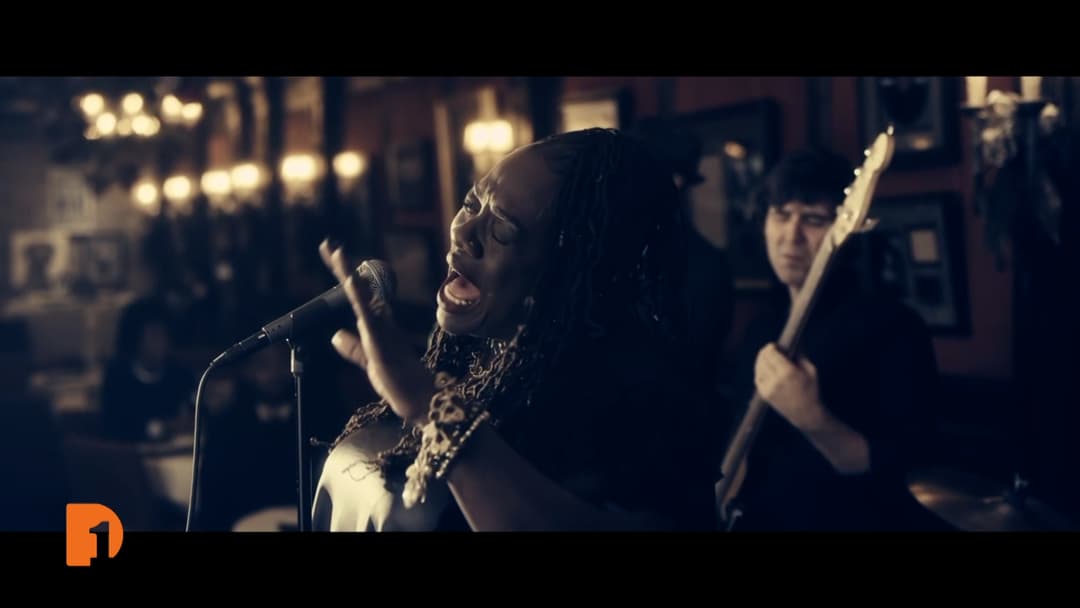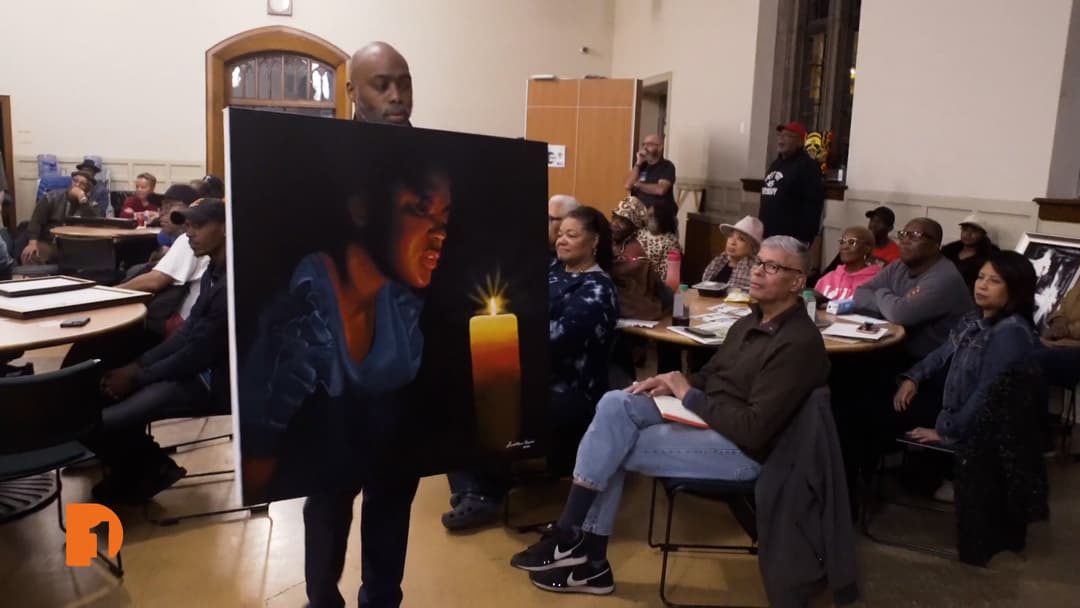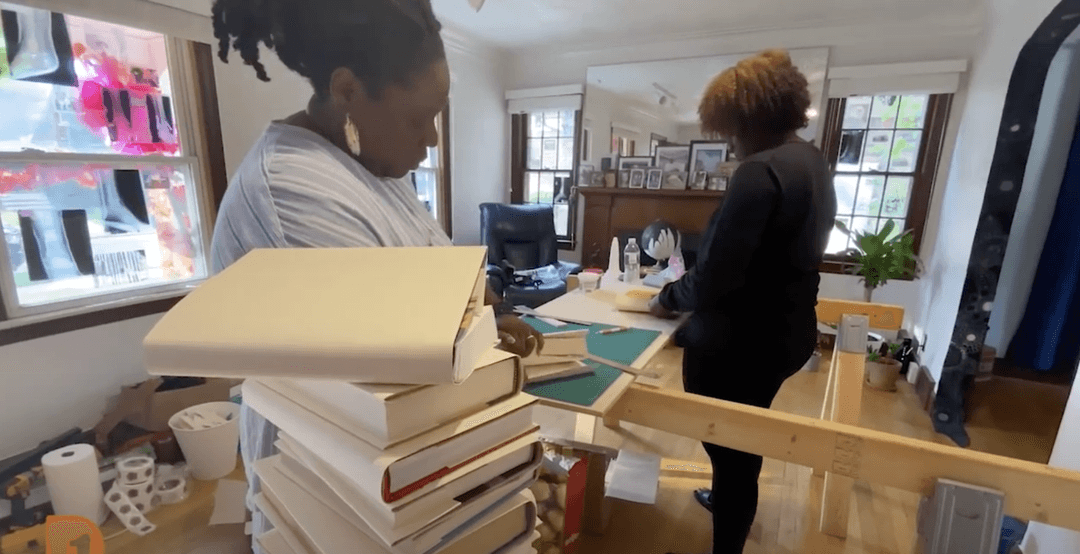Detroit artist Jessica Care Moore
Apr 17, 2020
How is renowned Detroit artist Jessica Care Moore a roller coaster girl? Find out that and how the playwright, poet, and performer spends her time during stay at home orders in this one-on-one conversation with Christy McDonald.
TRANSCRIPT
Christy McDonald Joining me now is Jessica Care Moore. She is a poet. She is a performer. She is a playwright. And she’s right here in Detroit with us. Jessica, it’s good to see you.
Jessica Care Moore, Poet Good to be seen and I’m quarantined with my teenager.
Christy McDonald Which brings on a whole host of other problems and things that you never thought you’d have to consider.
Jessica Care Moore, Poet Yeah, life has changed and a real interesting way, but it’s peaceful in my home. And I would take breaks and go outside and take walks and things. But it’s been interesting because my entire tour was canceled. And, you know, We Want Our Bodies Back as my first, it’s my first collection on a major press. I mean, I’ve been anthologized by everybody in orbit, anthologies that include poets, contemporary poets, for the most part. But and even in some textbooks. But it was my first collection that I decided I would give to my agent and try to get my work out more widely distributed it. Right. Because I’ve been doing more black press publishing books since nineteen ninety seven. So I could have done this book myself. So I made a big decision and then here comes this pandemic. You’re right. The tour is I have I was supposed to be on the road. The 17th is my kick off in Detroit and also to be gone until May.
Christy McDonald And life changes in an instant.
Jessica Care Moore, Poet Yeah, it’s okay though. You know, I’m healthy. So I’m not you know, the money it’s hard. It’s hard for every independent artists I know. I think people there’s a lot of, I guess, misinformation. People just don’t kind of understand how artists make a living who are not like mainstream Rihanna or Beyonce. Who are not like multi-million billionaires, like people who really have a working class existence as an artist. And that’s just that’s definitely me. I’m a working class poet living in Detroit, and I make my living getting on planes and going to perform or going to talk or workshop with people all over the world. And so to be literally grounded, it puts a lot of things in perspective. Makes me think about like, what am I? You know, sometimes as a full time artist, you question your decision making like, you know, should I just go get a teaching gig and then do poetry on the side? But it’s just it’s different when you’re doing that. You know, I’ve done I do residency work. But when you are full time and and you really can dedicate your brain to being creative. And but this country doesn’t support the arts. It just doesn’t. No administration has. It’s not just Trump’s administration. There hasn’t been an administration that says we’re gonna find a way to take care of artists so that when it’s slow, we have some kind of unemployment. Right.
Christy McDonald It is actually a huge part of our economy. And it’s a huge part of our emotional being that we we all need in some way, shape or form. And it’s really we’re not understanding that need in a monetary way.
Jessica Care Moore, Poet Yeah. And it’s it’s a real need for artists like me because I have a family to take care of. And so it’s. Yeah, you know, it’s I think this is a learning like this self-employment because could you asked my son to turn the water off. Thank you. He’s like, slamming the dishes.
Christy McDonald This is this is what doing work from home is all about. I completely understand.
Jessica Care Moore, Poet Okay at least he’s doing the dishes. So there’s that. Yeah and so it’s I think it’s gonna be learning this self. I don’t know if we’re ever going to really get this money. Six hundred dollars a week for self-employed gig workers but i heard gig workers, like all our musician friends are like. Oh, that’s what we do because they were talking about Uber eats drivers. We’re like gig workers are artists who have to travel for gigs to make a living. And so, yeah, I mean, you know, it makes me really think. But I’m figuring out ways. You know, I have to say that this community in Detroit and my fans and people that follow my work across the country have sustained me for the last three weeks. I’ve been selling Detroit t-shirts. People been buying my fourth book and by my vinyl. So I’ve been telling people, no, no, I don’t want to do a Go Fund Me. No, buy my store, buy my merch. If you’re my if you support my work, then purchase my my my books. I’m creating something for you to have. And so people have been buying. I’ve been the only place I’ve been going besides the supermarket is the post office.
Christy McDonald And then finding that community as well, and again, I would think that it had to be difficult for an artist who takes and is given so much energy from an audience. When you’re reading for them, when you’re performing in front of them and getting the ideas and everything that comes through, how have you kind of, I guess, harness that energy, redirected it where you’re at at this point.
Jessica Care Moore, Poet This is what we need these millennials to step up and figure this thing out for us because we want to have an audience. And that’s what’s missing, because we are the opposite of social distancing. Like what I do. I’m a hugger. I’m I’m a person that after my performance at a university. I’m there for an hour, hour and a half with the students afterwards talking to them. I go to dinner with the students. You know, so it’s it’s not like I’m doing my poems and bye. I’m very hands on and which makes which makes my work important, you know. And so you’re trying to figure out how my important sitting in front of a screen. And so what I’ve been I’ve been reading last night with Jay Ivy. I have a reading coming out with Kevin Powell and I are in conversation. He was supposed to be in conversation with me at my book release in New York. Talib Kweli was supposed to D.J. And so what we’d just taking it online and having conversations like this really help. Just connecting with you, being able to talk to another person. And when I read my work, you know, I do. I can find it. You know, I can find a way to it to delve into the texts in a way that I can tune everybody up. Sometimes even there’s an audience. I’m still gone. So I can still go away. You know, even just one person. But you do have to find that inner thing. And think about you thinking, my audience, that isn’t there. Audience that is there. So whoever’s watching this and I read a poem, I want to make sure they feel the poem. So I had to just really use my imagination and say, this is gonna be, people are seeing this. So read it like you would if they were in front of you.
Christy McDonald So is there any inspiration to being home where you are in this space, not able to do exactly what you do?
Jessica Care Moore, Poet I’m stir crazy. But you know what’s been interesting? My patio, I spent about two hours yesterday morning on my back patio. I have a wood patio that my friend built for me. And I just really talk. It’s crazy. But my birds and my squirrels are crazy. And the birds, you can hear the birds. I don’t know whether people live in Michigan, but the birds are. I have the sense that these birds in my neighborhood are in love with. And so the birds are back there. They have a whole life. So I’ve just been examining life and kind of celebrating it. And I watched these squirrels. This girl had this huge pizza. I think pizza up at a tree. I was like, you’re a crazy squirrel. So I was like talking to my the wildlife. We have rabbits i’m in Boston Edison. There’s rabbits. We have loud pheasants, which because we’re so quiet, these loud human beings that make the world noisy. You could actually hear the wildlife in the neighborhoods. So that’s been helpful. And I need this. When the sun comes out, it helps. I don’t mind the rainy night if the sun comes out the way it will, the way it’s shining right right now. And so China and then I’m getting music sent to me. You know, I don’t have a couple producers that have like, please send me music. I need to write. And I’m actually about to order equipment, something that I’ve been saying, I need to get studio equipment. I need to be recording my voice. And now I’m like, I have to do it. I have to spend the money and invest and having recording and creating a studio in the house. My son is interested in music production now. He wants to get, you know, something, logic or Fruity Loops or something so he can start making his music on the outside of his just his piano playing. So, we’re trying to figure out those things that you say that if I was at home, I would I’m trying to like get to that. But to be one hundred percent, it’s been very, very difficult. I have lost three friends in Detroit are gone. . And so as soon as you try to process that. Here comes another one. And then an addition to my personal friends, my friends, my friends, family members, my friends who’ve lost their grandmothers, their mothers. I mean, it’s been hard. Like Facebook. I had to take a break because in Detroit especially, it’s just been so hit. We’ve been hit. Black community here has been hit so hard. And we it’s a closer knit community. And people realize we’re very upsells. People from Alabama and we all know each other. I almost know everybody in the city.
Christy McDonald And I think it’s also the grief of not being able to put your arms around someone and be with them and present with them and to be able to talk about it in the news and the waves. It just keeps coming.
Jessica Care Moore, Poet It doesn’t mean because even the funerals are for the living. We know this. So it’s for us to be able to heal and honor the person that was alive. But that person’s gone. And you can’t even you know, my friend, you know. You know, Marlo, you know, his wife wasn’t able to, like, hold his hand. And, you know, you just think about the things my friend Arthur just came back from the hospital. My friend, my best friend, Charlotte, her sister had to move to hospice. This is hardcore, what’s happening right now? I’m trying to find a way to be creative in the middle of it. Sometimes, somedays I’m really just honestly sad. So, and allow myself to be like, okay, today I’m just not in a good place. And I’m having a moment. But I try to stay out of it because I have my 13-year-old to entertain on some level. He’s he’s been good. I’m happy that he’s not kind of in a funk. He just needs things to do outside. You know, he’s he’s on school full time. He’s a private school. So thank God he will be able to finish eighth grade with not, with work. And it’s sad for our Detroit public school kids who might get passed on, but if they’re not doing the work, they’re gonna be behind when they get to school next year. Unless you have a mom or dad at home that can really like facilitate online experience. So.
Christy McDonald Yeah. And devices and unlimited resources. I mean, and that’s something that we all don’t have.
Jessica Care Moore, Poet Yeah, 45 percent I think is the number of Detroit public school kids. So he, they put out the online piece, but then 45 percent of the families couldn’t access it. I mean, they should just Internet should just be free. Like with some Internet company needs to say, let’s just give Metro Detroit free Internet and these other cities as well where kids can’t afford it. And I’ve been inside these schools here. And so I know my my babies don’t have smartphones. And I tell I tell my son, who’s 13, us and my my my kids in high school don’t have these things that you have. So it’s a privilege, you know, a place to be. Just be able to be online with you right now because I paid my internet bill. The gas used to be really important now is like, I want to play that Xfinity. or, my HBO off because.
Christy McDonald Yeah, connect. Give people a sense of what it is like to escape a little bit through art, through poetry, through music, during a time like this when we don’t know what’s next. What is it?
Jessica Care Moore, Poet You know, for me that’s been my entire career for the last twenty five years has been about escaping some kind of reality. You know, being a brown girl from the west side of Detroit, that the Detroit public schools like really deciding that I will use language to write myself out of my circumstances, that I wouldn’t allow I will allow my imagination like I was going places in my mind before I ever went there. I knew I was gonna go to Paris one day. I knew I would one day read in West Africa. I knew I would go to Brazil. And so my art has been my way of I mean, pandemic is one thing, but there’s lots of other things that have happened in our community that I’ve written this book. We Want Our Bodies Back. The title, Homeless for Sandra Bland. You know, it was like me dealing with the pain of watching this woman get pulled over for a traffic stop at twenty-eight and end up dead. And, you know, going to Ferguson, I went to Ferguson. You know, I taught in St. Louis juvenile detention centers for seven years. So I was very connected to the St. Louis community with those kids. And so I was like, I have to go on. When Mike Brown got killed. I got tired of looking at the television, so I went with Talib Kweli and Rosa Clemente, a wonderful Latino activists, and we all were on the phone. So let’s just stop talking about this and let’s just go. We went on the frontline. You know, and was there with the people and for several days. And then it went back to do fundraisers with Tom Morello of Rage Against the Machine and a boost from the coup and then a rock n roll concert. And so, I mean, it’s been the way I’ve created my entire life around art and in finding purpose. And the things that I do are connected to that. Art is one of it, but it’s also just connected to a greater existence of trying to make social change, trying to make sure that, you know, my community is not ran over is not this week. It had no disregard for children’s lives. I’m raising a young, beautiful, smart African-American boy in Detroit and at the taller he gets and the smarter he gets the more afraid I become. And so, you know, having to talk to him about how to act or put up by the police and things like this, that you just, you know, like you don’t want to have these conversations. Like, I just want to raise my son to be the gentle, human, goofy kid that he is. But I know that everyone is gonna see him that way when he walks in the room and. And so, yes. So for me like this, it’s been a consistent thing. I mean, I wrote a lot during the Bush administration. I was traveling a lot. And I was having to. And I wrote a lot of what was happening. I wrote about the World Trade Center when it happened. All of my books, before this one have always been about documenting history, documenting the times. Right. Besides just documenting who I was married to, my books husband was that, you know, it’s like a lighthearted way. I always make jokes like, oh, that was that guy. Oh, yeah. And then, you know, new book, new person. But outside of that, it has actually been like, if I, when I go back and that’s what I’ve been doing, too. I’ve been going back at my work, looking at my first book is The Words Don’t Fit in My Mouth, I was just a baby when I wrote this. This is my first book. It came out 1997 with my daddy on the cover. And so my first poem that I read in front of the audience was a poem I read at my dad’s funeral, called Breeze. and that was in 1994 , you know when I actually read a poem and people clapped at the funeral like oh ok. And the poems not like a fantastic, it’s good I guess for a funeral home at a funeral to honor my father. You know it’s a very personal piece but that was the beginning of me saying, Okay, I’m going to write poetry, I’m going to share it more. I always wrote poems. I was very quiet when I was younger. Believe it or not. But the poetry, you know, I just I never shared it. And then I was like, OK, maybe I can share it with people. And then I got something out of that experience that I couldn’t I can’t not experience it anymore. You can’t undo it when you connect with the person. I mean, I’ve been in places where they don’t even know where I’ve been in Potsdamer Platz in Germany at International Poetry Festival, the youngest one, I was there with Derek Walcott and all kinds of amazing people. I think I was the only US poet, though, because he was representing Martinique and they translated all our work into German in his little books and Potsdamer Platz and it’s thousands of people. It looked like a prince concert for poets, poets from Indonesia, poets from London, poets from Amsterdam. It’s all speaking in their native tongue. And yet these German girls are like crying. And I’m reading a poem and I’m like. And they’re like reading it, looking at me and looking down. And there I’m like, this is most. And so I don’t know. It’s a long answer. But to say that this the work has carried me into so many different spaces and and helped me, heal do a lot of things and we want our bodies back is what I’ve been calling this book is like a healing because it really is for me. It’s a very personal work. I open talking about my wanting, my body, my daddy’s body back me for hospital. I’ve wanted to literally go in and get him out of there. And so then I go into his joyful poems about Ossie Davis and Ruby Dee. You know, celebrating who they were. To me personally, I was able to meet and work with Ossie Davis. On one occasion, I worked as a Ossie Davis, we read slave narratives at Church in Harlem. And so I was sitting right next to me and I wrote a poem about how nervous I was, like Ossie Davis sitting right next to me. And after I read my by my narrative, I sat down next to him. He shoved me in my side with his elbow. He said he’d done good. You know? You know, and so there’s there’s celebration there to balance out, you know, some of the pain, Ntozake Shange was a big influence in my life. I learned about it as Ntozake Shange work in a black box theater at Cody High School. Susan Story, my drama teacher, who I adore to this day, changed my life when she brought her into the classroom. And so there’s poems Ntozake has passed away a couple of years ago now and I’ve written lots of poems, are her. She’s her work is in the book, her Sania poems for Sonia Sanchez. You know, lots of homages that I didn’t even realize it until you’re done with it. Yeah. Yeah. So. Yeah.
Jessica Care Moore, Poet So tell everybody where they can get the book, Jessica
Jessica Care Moore, Poet Oh you can get the book anywhere. if you’re not feeling Amazon. You can get it. I’m telling you, you can get it on Amazon. But if not, you can call a local your local bookstore that’s online. Alot of these bookstores, independent ones in particular really need your support. So you can like, in Detroit, Source Booksellers carries my book. And so you can call Source and get online with Source and they’ll order and hold the book for you or I’m assuming hey’ll send it to you. Amazon is a quick way to get it. Barnes&Nobles.com, anywhere books are sold. The book is there. And if they want to support me right now. JessicaCaremoore.com and that’s where you can get my other books and things.
Christy McDonald Is there anything that you would want to read for us? Think that speaks to you, tell me.
Jessica Care Moore, Poet I want to read something. I want to read. Is that a long piece? This is I Used to Be a Roller Coaster Girl and it’s a poem that I wrote. I had some time with Ntozake Shange before she passed away. I’m so grateful for the time I spent with her in Miami. With her, Sonia Sanchez and the Last Poets. So they had a weekend maroon festival and they were honoring Aja Monae, a poet, and she was honoring them. So I decided just to come. I wasn’t even there. And I was like, I’m coming. I stayed at their hotel just like I spend the mornings with them. So this is what I used to be a roller coaster girl, because it’s about it’s based on a conversation I had with the. “I used to be a roller coaster girl seven times in a row. No vertigo in these skinny legs, my lipstick, bubblegum pink as my panther, 10 speed, never kiss nappy pigtails, no-brand gym shoes, white lined yellow short-shorts, scratched up legs pedaling past borders and Hummus and baba ganoush. Masjids and liquor stores, City chicken, pepperoni bread is superman ice cream cones. Yellow black blending with bits of Arabic, Islam and Catholicism. My daddy was Jesus. My mother was quiet. Jayne Kennedy was worshiped by my brother Mark. I don’t remember having my own bed before. Well, me and my sister Lisa shared sometimes all three Moore girls slept in the Queen. You grow up so close. Never close enough. I used to be a rollercoaster girl, wild child, full of flowers and ideas. Useless crushes on Polish boys in a school full of white girls. Future black swans singing Zeppelin, U2 and Rick Springfield hoping to be Jessie’s girl. I could run my brothers at everybod, everyone else to that re-occurring line. I used to be a roller coaster girl, till you told me I was moving too fast. Said my rush made your head spin. My laughter hurt your ears. A scream of happiness, a scream of freedom. Point out my armpit sweat and my neck. You are always the scared one. I kept my eyes open for the entire trip right before the drop. I would braced myself and let the force push my head back into that hard iron seat. My arms nearly fell off a few times. Still, I kept running back to that line. When I was done the same way, I kept running back to you. I used to be a roller coaster girl. I wasn’t scared of mountains or falling. Hell, I look forward to fly it and drop it off this earth and come back to life every once in a while. I found some peace in being out of control, allowing my blood to race in my veins. A one hundred and eighty seconds. I earn my sometimes nicotine pull. I buy my own damn drinks, and the ocean still cause my name when it feels my toes near its shore. I still love roller coasters, and you grow up to be afraid of all girls who could ride fearlessly like me”. So that’s about my little my little Jessica growning up.
Christy McDonald Thank you. That was. Thank you.
Jessica Care Moore, Poet Yay! Thank you.
Christy McDonald I love that. I love just being able to sit and listen and hear something else.
Jessica Care Moore, Poet think that’s what’s important about you doing this. So, thank you because we need more of this. You know, I don’t think most of my poet friends. It’s our first time ever going online on a live on Instagram. Yeah, I’m private at home. I don’t go live on Instagram. I don’t go live on Facebook. I always thought that was the corniest thing in the world. And now I’m like doing it so I can connect with people like you. So.
Christy McDonald Well, thanks for the connection today, Jessica. Care Moore? It was my privilege. Thank you. Be well.
Jessica Care Moore, Poet And you, too. Take care. Stay in.
Stay Connected
Subscribe to One Detroit’s YouTube Channel.
Catch the daily conversations on our website, Facebook, Twitter, and Instagram @detroitperforms
Related Posts
Leave a Reply
Your email address will not be published. Required fields are marked*
